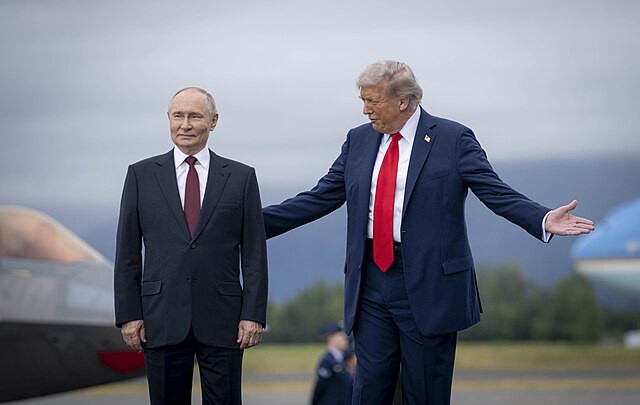Russia unleashed its largest August barrage against Ukraine overnight, targeting energy and industrial facilities just hours after President Volodymyr Zelenskyy met with President Donald Trump and European leaders in Washington to discuss a potential roadmap for ending the war.
Ukraine's air force said Moscow launched 270 drones and 10 missiles from Monday night into Tuesday morning, calling it the most intense strike since July 31. Thirty drones and six missiles were intercepted, but 40 drones and four missiles struck sites across 16 locations, with debris falling in at least three others.
The Ministry of Energy reported that oil refining and gas infrastructure in the central Poltava region bore the brunt of the assault. "As a result of the attack, large-scale fires broke out," the ministry said, denouncing what it called "systematic terrorist attacks against Ukraine's energy infrastructure, which is a direct violation of international humanitarian law."
Russian officials said their forces repelled 23 Ukrainian drones overnight, including 13 downed over the Volgograd region. Governor Andrey Bocharov said falling debris ignited a refinery fire and damaged the roof of a hospital, but no casualties were reported.
The strikes capped a day of high-level diplomacy in Washington. Trump, Zelenskyy and several European heads of state convened at the White House, where the Ukrainian leader described the talks as "truly a significant step toward ending the war." French President Emmanuel Macron was more skeptical, saying, "I have the greatest doubts about the reality of a desire for peace on the part of the Russian president."
The discussions followed Trump's meeting with Russian President Vladimir Putin in Alaska last Friday, where, according to two sources, Putin demanded that Ukraine cede all of Donetsk in exchange for a ceasefire. Trump later wrote that Zelenskyy could "end the war with Russia almost immediately, if he wants to, or he can continue to fight," comments that fueled concern among European officials.
During Monday's Oval Office meeting, Trump reiterated his opposition to Ukraine's NATO membership and said Kyiv would not regain Crimea, occupied by Russia since 2014. Still, both he and Zelenskyy voiced support for direct negotiations with Putin. "I think it's going to be when, not if," Trump said, adding later that he had spoken by phone with Putin to begin arranging a meeting.
European leaders emphasized the risks of territorial concessions. German Chancellor Friedrich Merz compared Russia's demand for Donbas to the U.S. being asked to give up Florida. "A sovereign state cannot simply decide something like that," Merz said.
Zelenskyy expressed gratitude for U.S. backing, writing on Telegram that the summit sent "an important signal from the USA regarding readiness to support and be part of post-war security guarantees."






